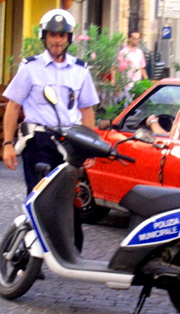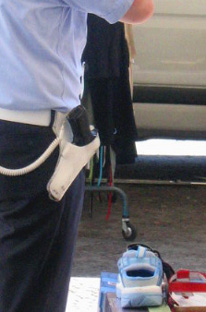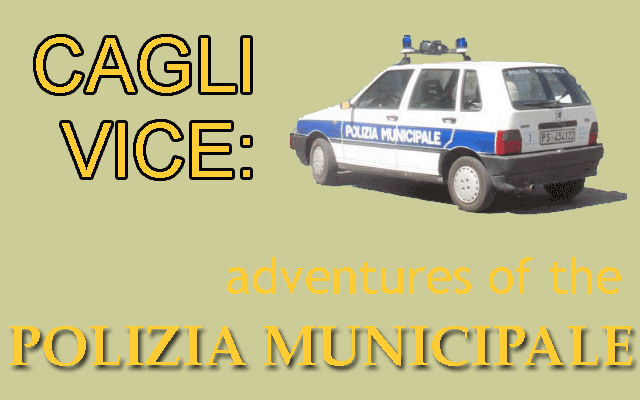
Now travel across the Atlantic, past six time zones, several language barriers and varying economic structures. A three-hour bus ride from Rome through the poppy-laden hillsides of Lazio and Le Marche finds one in Cagli, Italy, a tiny mountain village devoid of Capitalist-driven values, instead sowing the seeds of laid-back country charm. Here, there are no dark alleys, no shady street criminals, and no Fox reality programming that puts fear in the hearts of citizens. Without noticeably distinct social gaps in Cagli, people are law-obedient, complacent, and uncompromisingly kind towards one another.
The town folk gather each evening over birra e vino to share daily observations around the piazza, as well as the intricacies of an Italian workday, which seems to last about fifteen minutes, sunup to sundown. Children freely roam the back roads, amidst crumbling stone and stray cats, without parental anxiety over their walking alone at night. Catch a panino at the local cafe and pay when you leave, or ten days from now; the owners trust that they will eventually be compensated. Trust street vendors also to give fair prices always, even though as a confused tourist, you risk purchasing scented candles in bulk for your efforts.
With so much trust and goodwill around town, I asked myself, Is there a need for a local police force? The most basic form of law enforcement drives a Fiat Punto with small blue lights on the roof, a vehicle about as imposing as a child's first "Power Wheels." This is the Polizia Municipale: a group of seven to ten officers dedicating their workdays to serving and protecting the Cagliese. Parked daily in front of the clock tower that looks like the one in Back to the Future, slightly modified, the Polizia Municipale stroll the plaza to sniff out nonexistent criminal activity, finding instead only fender benders and honking horns.

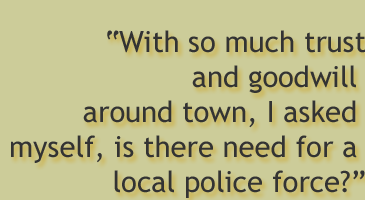
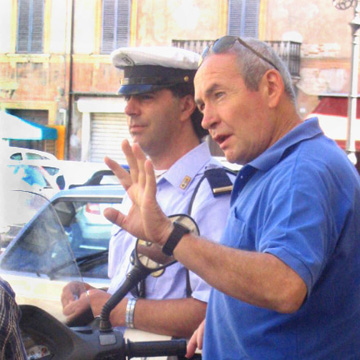
I decide I must speak with one of the legendary men in blue myself: Giancarlo Sirigeni, a member of the Polizia Municipale for twenty-two years. Yes, Sirigeni's job is serious (to judge by his short, to-the-point anecdotes) and demanding, as he works six hours a day six days a week. He files paperwork for traffic violations, building permits, and various legal documents. Cases of theft, as well as destruction of property, are extremely rare. If caught, criminals are sued (fined) and given community service as worthwhile punishment. "Almost every activity in Cagli is under our jurisdiction," he mumbles through the use of an interpreter, his voice monotonous and matter-of-fact, reluctant to divulge too much information. He mentions that the Polizia Municipale develops a positive rapport with citizens by staying in constant contact, and citizens respond by obeying and respecting the laws of the men in blue.
Despite the subject's courtesy, the interview revealed no juicy anecdotes. I sit down instead with Captain Roselli, the head honcho in the Polizia Municipale for nine years. Roselli's hand gestures are more animated and passionate than Sirigeni's; he is an outgoing personality well-suited for his position. Thirty-one years ago, he began as a "Vigile Urbano," the lowest rank of officers in Cagli. His inspiration to become a cop stemmed from a desire to know all details, large and small, of Cagli life. Unlike Sirigeni, who knew of no Italian cop stereotypes, Roselli reminds me that "Piedipatti," or "flat-footed," is a reference to a cop responding slowly to a call. However, The Captain assures me that he himself is always quick to take a call, and he speaks with a prize fighter's confident swagger.
I am reminded again that "traffic cop" is a poor stereotype about the Polizia Municipale. Along with helping elderly women maneuver across dangerous one-lane roads, the Polizia Municipale is the team of choice to transport the mentally handicapped to a local hospital because "we are less intimidating than the Carabinieri," a more militant, regional force which oversees the thefts and domestic disputes usually avoided by the Polizia Municipale. In describing the relationship between the PM and the CB, Roselli explains, "We prevent crime in Cagli, but sometimes we just don't have the manpower, and this is when the Carabinieri comes in." There isn't even a local jail in Cagli, so in the event of a major criminal offense, the PM calls in the CB, clad in fine navy blue outfits and sporting large-and-in-charge jeeps. Despite the obviously more intense duties of the Carabinieri, Roselli prefers his job because of a wider variety of work and greater respect from his peers. Even so, from my translator Antonio, I learn that there are numerous books filled with one-liners about the mental ineptitude of the Carabinieri :

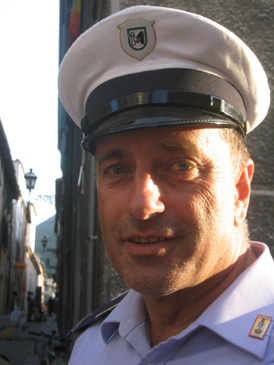
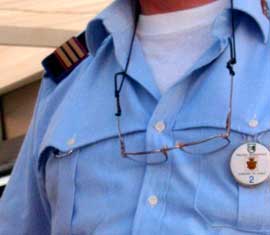
QUESTION: How many Carabinieri does it take to screw in a light bulb? ANSWER: 100. 1 to hold the light bulb, and 99 to turn the building around.
Roselli is a religious man and thankful to be watched over by a higher protector, just as he protects his fellow Cagliese. A picture of Saint Sebastian, patron saint of the police (there IS such a thing) looms high on the front wall of his office, and this day is celebrated by the force every January 20th. The pace of his job allows the Captain to devote great amounts of time to individuals, something he sees as a moral necessity in helping others. One time, he was able to help a Cagli immigrant living in The Balkans find information about his family, leading him to his ancestral origins. Such an accomplishment is possible because "God helps me and leads me through difficult situations." Moving his dark, beard-laden chin towards the sky, he thanks God he has never fired his weapon. "I go to bed each night asking myself if I've done enough to help my fellow Cagliese. Most nights I sleep very well." How can this man not have a primal, incessant urge to use his gun? Possibly, this reporter needs to learn a lesson in self-restraint.
Admiring the sheer complexity of his hand motions, I offer
Captain Roselli two more questions before he goes back to a busy day of
paperwork. The first question, very serious in nature, is, "Do the women
of Cagli find your uniform attractive?" He chuckles, then offers a ten-minute
anecdote that translates loosely into "umm, no." However, he flashes back
to a time when uniforms were all white, and how little kids and adults
alike would shout "gelati, gelati!" in mocking the Captain's appearance
as a badge-wearing ice cream man. Drinking coffee also became a problem,
because multiple spills caused the Polizia Municipale to look a
little bit like formally dressed dalmatians. 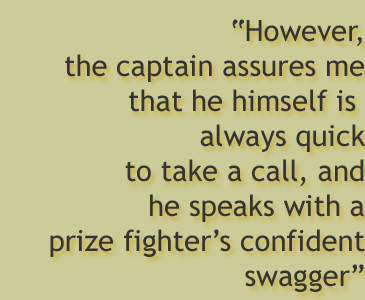


Roselli poses for a photo with his hat, uniform, and seldom-used gun planted in its holster around a pearly white belt. I ask for some written police records to support my suspicions of unreported crime, but a wry smile is all Roselli offers. Yes, a day in the life of a Cagli Polizia Municipale lacks the exciting crime-drama heroics this curious reporter had hoped for. The town is attuned to social order and adheres to such a strong sense of family that law enforcement need not be so brash and intimidating as to conflict with slow-moving days filled with three-hour pausa (naps) and enjoying gelati. I can't help but feel a sense of envy and longing for this world, for in my own, I fear to walk deserted streets alone because of potential crime. There are no horrific stories flooding the front pages of Cagli's newspapers. Here, on a typically hot yet gorgeous Wednesday morning, market traffic creates chaos for two young teachers attempting to transport elementary schoolers across the piazza. Unfortunately, speeding motorcycles and buzzing planes distract the youngsters from keeping single file. Someone needs to help them--to move the group through the bustling streets without impending casualties! For troubled times such as these, the Polizia Municipale will be there.
First Impressions and local opinions about the Polizia Municipale
